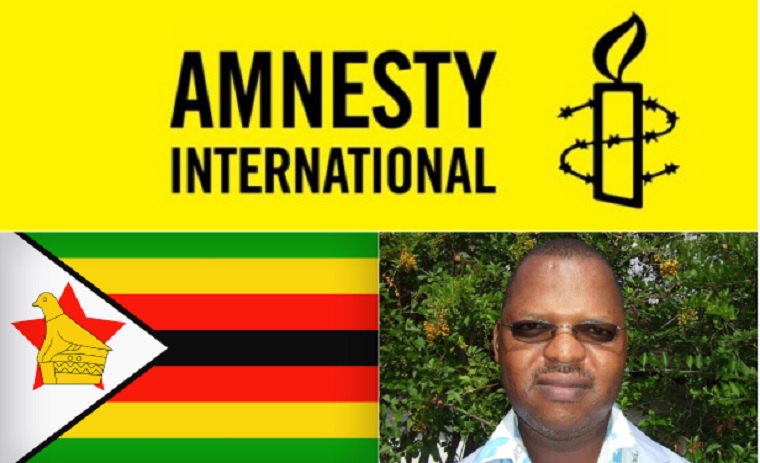 What is going on at Amnesty International? First, two staff members killed themselves last year. Then an internal review ordered by Amnesty Secretary-General Kumi Naidoo revealed a “toxic” workplace culture of bullying and nepotism.
What is going on at Amnesty International? First, two staff members killed themselves last year. Then an internal review ordered by Amnesty Secretary-General Kumi Naidoo revealed a “toxic” workplace culture of bullying and nepotism.
And in June, Amnesty had to shut down its Zimbabwe branch over alleged abuse of donor funds and fraud by its own staff. Millions of dollars are still unaccounted for – a first for Amnesty and a huge loss of face for an NGO that prides itself as a human rights champion.
In a statement at the time, Amnesty said: “An extensive forensic audit was conducted in late 2018 which uncovered evidence of fraud and serious financial mismanagement by individuals in AIZ (Amnesty International Zimbabwe).”
Amnesty’s regional spokesperson, Robert Shivambu, declined to comment on the allegations citing pending investigations.
So it comes as some surprise that Amnesty has now attacked Zimbabwe for an alleged human rights crackdown since the fall of Robert Mugabe in 2017. It has produced a report that catalogues allegations of abuses, including arrests of rights activists in the country.
Muleya Mwananyanda, Amnesty International’s deputy director for southern Africa, claimed that the Zimbabwean government has carried out a “ruthless attack on human rights, with the rights to freedom of expression, peaceful assembly and association increasingly restricted and criminalised.”
As Amnesty no longer operates an office in Harare, one wonders how they were able to verify these allegations. Its country director had resigned once the fraud was revealed, while the chair and finance officer are currently suspended and Muleya Mwananyanda is based out of Johannesburg in neighbouring South Africa. For an NGO to judge both protestors and the government fairly in Zimbabwe, it should be on the ground to see the real situation.
Zimbabwe responded sardonically, pointing out Amnesty’s lack of integrity in the country and its recent false allegations. “We also wish Amnesty International would improve on its governance and credibility after recent corruption scandals involving the major abuse of donor funding and false claims that one Tinashe Kaitano of Kadoma had been shot by authorities and buried, a claim which later proved to be a falsehood when Mr. Kaitano appeared in court,” said Nick Mangwana, Secretary for Information, Publicity and Broadcasting Services.
While there are certainly sporadic cases of robust reaction by security forces in Zimbabwe, this is a matter for police training and reforms, which are ongoing. As for the current situation in the country, it is quite clear to most observers that Zimbabwe has made great strides in opening up media, economic and political spaces since President Emmerson Mnangagwa came to office.
His government is reviewing 30 Mugabe-era bills and is in the process of upgrading them to Western standards. These include the much-criticised Access to Information and Protection of Privacy Act (AIPPA) and the Public Order and Security Act (POSA). The former was repealed last month and replaced by the Freedom of Information Bill, which seeks to uphold citizen’s rights to access information in line with Zimbabwe’s constitution and established international norms. The latter is expected to be succeeded by the Maintenance of Peace and Order Bill (MOPA) soon, which aims at ensuring the freedom of assembly and modernising the management of public gatherings.
In fact, while there was a decline in political rights and civil liberties worldwide for the 13th year running, according to the international watchdog Freedom House, Zimbabwe is the only country in the world whose status improved this year, moving up from Not Free to Partly Free. While clearly Partly Free is a long way from perfect, singling out a country that is demonstrably moving in the right direction is unhelpful.
Perhaps Amnesty failed to get a true picture of the changes taking place in Zimbabwe, focused as it is on its own internal issues and lacking the local knowledge that would be crucial in such analysis.
When any organisation questions governments over human rights allegations, it should ensure that its own standards are beyond reproach. And Amnesty has failed its donors, stakeholders, and supporters by not keeping its own house in order, in Zimbabwe and elsewhere.
Governments need to be held to account – that’s for sure – but so do NGOs!
By Krishna Nag for International Policy Digest
(115 VIEWS)






0 Comments